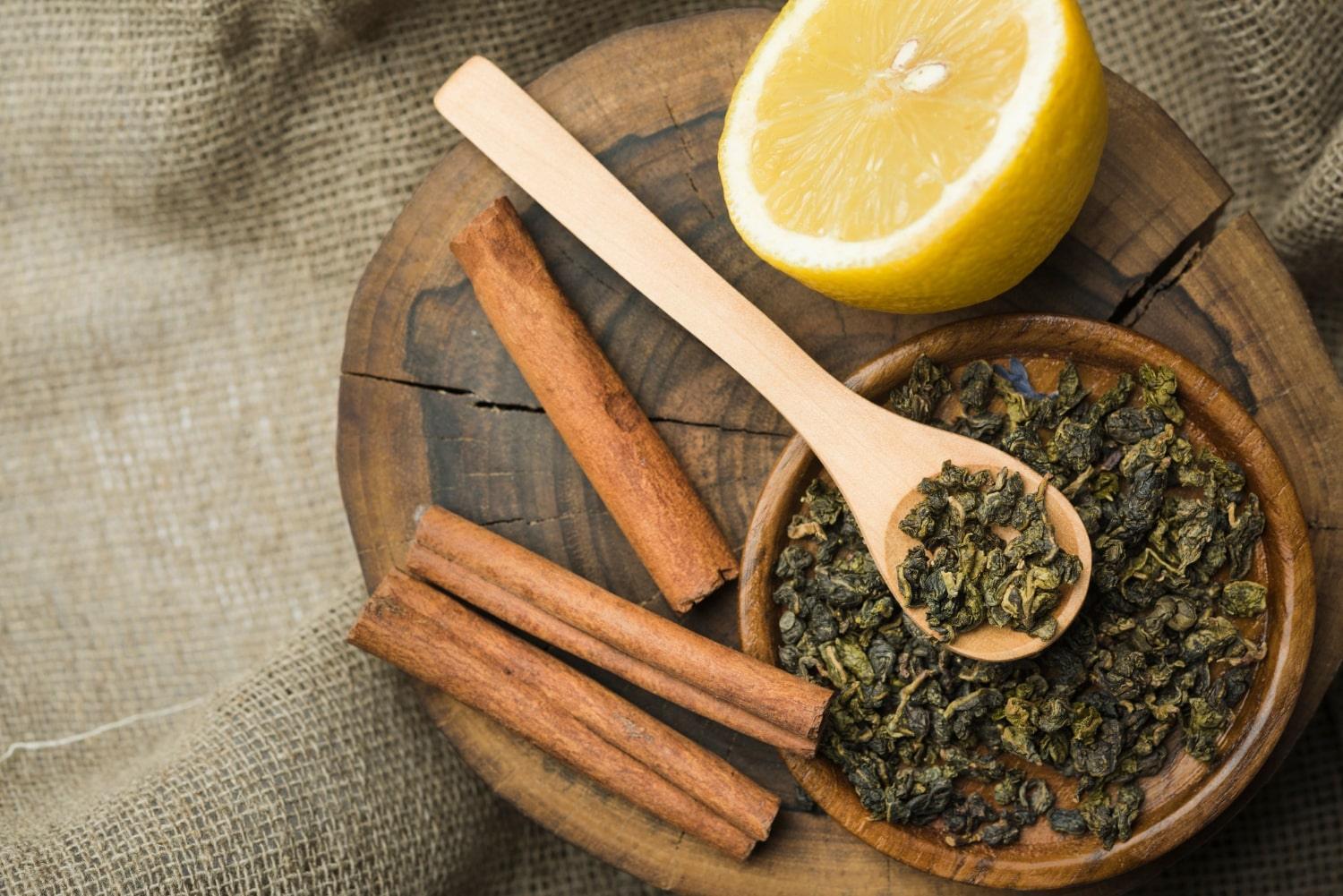Digestive teas can be a warm hug for your stomach. They’re not just trendy; they offer real relief for bloating, cramps, and overall digestive discomfort. If you’re tired of feeling sluggish after meals or battling stomach woes, these seven herbal allies can make a world of difference. Let’s dive into how each one can be a game changer for your gut health.
Contents
- Why Digestive Teas Matter
- 1. Peppermint Tea: The Classic Calm
- 2. Ginger Tea: The Spicy Soothe
- 3. Chamomile Tea: The Gentle Giant
- 4. Fennel Tea: The Flavorful Fix
- 5. Dandelion Tea: The Detox Dynamo
- 6. Licorice Root Tea: The Sweet Soothe
- 7. Rooibos Tea: The Caffeine-Free Comfort
- How to Incorporate Digestive Teas into Your Daily Routine
- Bottom Line
Why Digestive Teas Matter
Digestive health is crucial for your overall well-being. When your digestion is off, it affects your mood, energy levels, and even your skin. You might find yourself reaching for antacids or over-the-counter medications more often than you’d like. But what if you could soothe your stomach naturally with a delicious cup of tea?
Digestive teas harness the power of herbs and plants to help your body do what it’s meant to—digest food efficiently and comfortably. These remedies have been cherished across cultures for centuries, and for good reason. They are easy to prepare, affordable, and can be a delightful ritual in your day.
1. Peppermint Tea: The Classic Calm
Why Peppermint?
Peppermint tea is a go-to for many when it comes to digestive issues. Its menthol content relaxes the muscles of the gastrointestinal tract, making it a fantastic option for alleviating bloating and gas.
How to Brew:
- Steep fresh or dried peppermint leaves in boiling water for about 10 minutes.
- Add honey for sweetness if desired.
Benefits:
- Eases symptoms of irritable bowel syndrome (IBS).
- Improves bile flow, aiding digestion.
Research Backing:
Studies suggest that peppermint oil can significantly reduce IBS symptoms. The National Institute of Health has some fascinating insights on this.
2. Ginger Tea: The Spicy Soothe
Why Ginger?
Ginger tea has been a staple in traditional medicine for centuries. It’s known for its ability to calm nausea and promote digestion.
How to Brew:
- Slice fresh ginger and simmer it in water for 15–20 minutes.
- Strain and add lemon for an extra zing.
Benefits:
- Reduces nausea, especially during pregnancy or after surgery.
- Aids in nutrient absorption.
Research Backing:
Ginger has been shown to help with various digestive issues. A study published in the Journal of Gastroenterology highlights its effectiveness in combating nausea and vomiting.
3. Chamomile Tea: The Gentle Giant
Why Chamomile?
Chamomile is more than just a calming bedtime drink. It can ease digestive distress and help you unwind after a long day.
How to Brew:
- Steep chamomile flowers in boiling water for 5–10 minutes.
- Sweeten with a touch of honey or drink plain.
Benefits:
- Reduces inflammation in the gut.
- Promotes relaxation, which can further aid digestion.
Research Backing:
Chamomile has been studied for its anti-inflammatory properties. The Journal of Clinical Gastroenterology offers compelling evidence of its benefits.
4. Fennel Tea: The Flavorful Fix
Why Fennel?
Fennel seeds are not just for cooking; they’re a powerhouse when it comes to digestive health. The tea made from these seeds can help eliminate gas and bloating.
How to Brew:
- Crush fennel seeds and steep them in hot water for 10 minutes.
- Strain and enjoy warm.
Benefits:
- Reduces bloating and gas.
- Aids in digestion and can relieve stomach cramps.
Research Backing:
Fennel has been recognized for its digestive benefits. According to the American Journal of Digestive Diseases, fennel oil can significantly alleviate bloating.
5. Dandelion Tea: The Detox Dynamo
Why Dandelion?
Dandelion tea isn’t just a weed; it’s a fantastic digestive aid. It helps stimulate appetite and can relieve constipation.
How to Brew:
- Use fresh dandelion leaves or dried roots, steeping in boiling water for about 10 minutes.
- Add a splash of lemon for flavor.
Benefits:
- Promotes liver function and detoxification.
- Acts as a mild diuretic, helping your body flush out toxins.
Research Backing:
Dandelion has been used traditionally for liver health. The Journal of Ethnopharmacology discusses its efficacy in supporting digestion.
6. Licorice Root Tea: The Sweet Soothe
Why Licorice Root?
Licorice root tea is naturally sweet and has soothing properties that can help with heartburn and stomach ulcers.
How to Brew:
- Boil licorice root slices in water for 10 minutes.
- Strain and sip slowly.
Benefits:
- Soothes inflamed membranes in the stomach.
- Helps balance stomach acid.
Research Backing:
Studies indicate that licorice root can help heal stomach ulcers. The American Journal of Gastroenterology has documented its benefits extensively.
7. Rooibos Tea: The Caffeine-Free Comfort
Why Rooibos?
Rooibos tea is naturally caffeine-free and packed with antioxidants, making it a gentle choice for your digestive system.
How to Brew:
- Steep rooibos leaves in boiling water for 5–7 minutes.
- Enjoy it plain or with a splash of milk.
Benefits:
- Reduces inflammation and calms the digestive tract.
- Helps regulate blood sugar levels.
Research Backing:
The antioxidant properties of rooibos are well-documented. The Journal of Food Science emphasizes its health benefits.
How to Incorporate Digestive Teas into Your Daily Routine
Making digestive teas a part of your life is simple and rewarding. Here are some tips:
- Morning Ritual: Start your day with a cup of ginger or peppermint tea to kickstart your digestion.
- Midday Break: Sip on dandelion or fennel tea after lunch to help your body process the meal.
- Evening Wind Down: Enjoy chamomile or rooibos before bed to relax and soothe your stomach.
Bottom Line
Your stomach deserves a little love, and these digestive teas can provide just that. From the invigorating zing of ginger to the calming embrace of chamomile, there’s a tea for every need. Incorporating these herbal delights into your routine can transform your digestive health and, ultimately, your quality of life.
So why not brew a cup today? Your stomach will thank you.
Frequently Asked Questions
1. How often can I drink digestive teas?
Most herbal teas can be consumed daily. However, it’s wise to listen to your body and consult a healthcare provider if you have specific health concerns.
2. Can I mix different types of teas?
Absolutely! Experimenting with blends can create unique flavors and benefits. Just ensure that the combinations suit your digestive needs.
3. Are there any side effects?
Generally, herbal teas are safe, but some people may experience allergies or interactions with medications. Always consult your doctor if unsure.
4. Can I use pre-packaged tea bags?
Yes, pre-packaged teas are convenient, but fresh herbs usually offer the most potent benefits. Look for high-quality brands if you choose tea bags.
5. How can I enhance the taste of herbal teas?
Add honey, lemon, or even a splash of milk to enhance flavor while still reaping the benefits. Enjoy the process and find what works for you!
Get Your FREE Natural Health Guide!
Subscribe now and receive our exclusive ebook packed with natural health tips, practical wellness advice, and easy lifestyle changes, delivered straight to your inbox.





